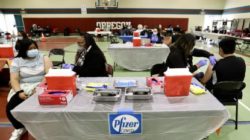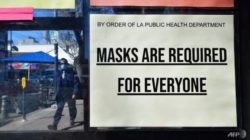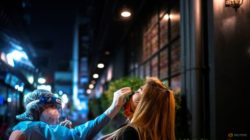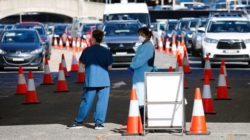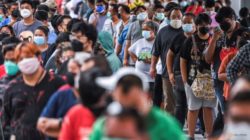Thousands of demonstrators flooded the streets of Amsterdam on Sunday (Jan 16) in opposition to the government’s COVID-19 measures and vaccine campaign, which came as virus infections reached a new high.
Authorities were given stop and search powers at many sites throughout the city, and riot police vans patrolled the neighborhoods where demonstrators marched with banners and yellow umbrellas.
Farmers drove to the city and parked tractors along the central Museum Square for Sunday’s big anti-coronavirus protest, which was joined by farmers who drove to the capital and placed tractors along the central Museum Square.
The throng began by playing music, chanting anti-government slogans, and then marching through major thoroughfares, obstructing traffic.
During the end-of-year vacations, the Netherlands was subjected to one of Europe’s worst lockdowns.
Amid record numbers of new COVID-19 cases, Prime Minister Mark Rutte announced the reopening of retailers, hairdressers, and gyms on Friday, despite mounting public opposition.
Infections hit a new high of over 36,000 on Sunday, according to data released by the Netherlands Institute for Health (RIVM). Since the outbreak began, the Netherlands has seen around 3.5 million illnesses and 21,000 deaths.
The lockdown was imposed by Rutte’s government in mid-December, when a wave of the Delta variety forced the health system to suspend all but the most urgent care, and it appeared that mounting Omicron cases would overwhelm it.
Under tight circumstances, non-essential businesses, hairdressers, beauty salons, and other service providers were allowed to reopen on Saturday.
Due to uncertainties about how the Omicron wave would affect hospital capacity, bars, restaurants, and cultural venues have been ordered to remain closed until at least January 25.



